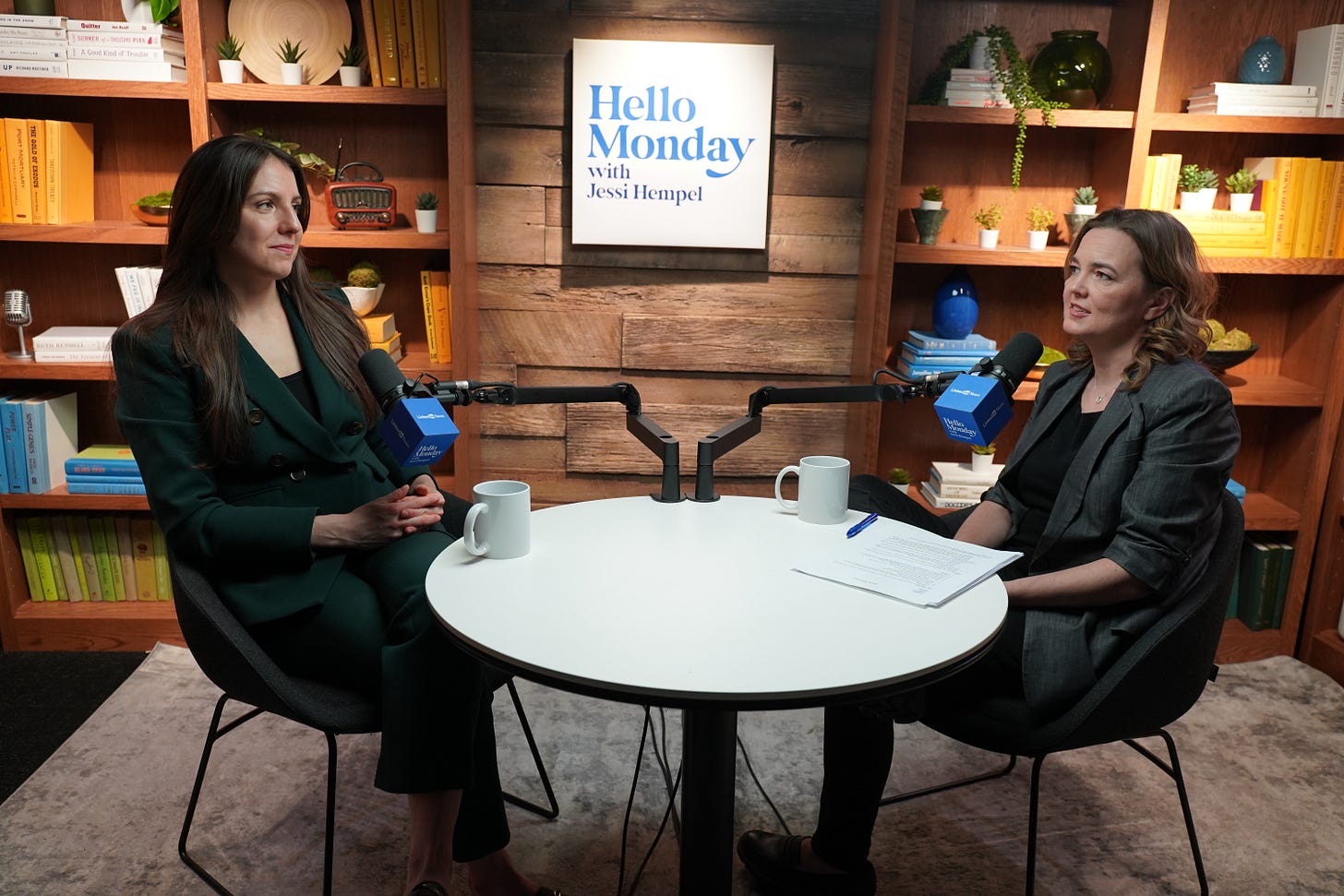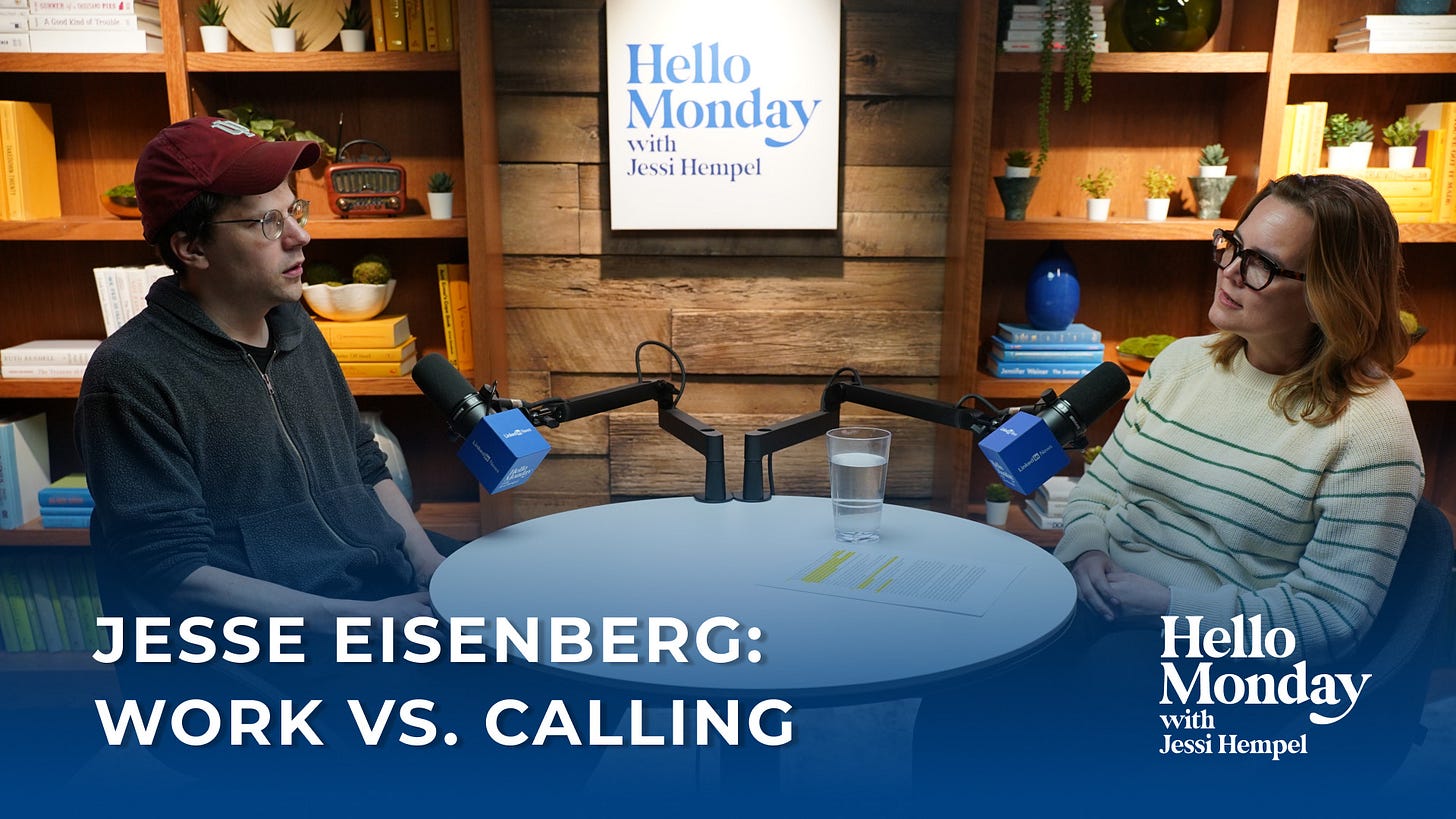The most successful people manage up
A guide to managing Your boss so that you control your destiny
Most management books focus on how we motivate and cajole the people who work for us. But anyone who has ever attempted to affect change from inside an organization—be it a corporate setting, a community group or fellow artists at the clay studio—understands that the most important managing we do is the implicit soft work involved in managing the people around and above us. We manage up.
🎧 Check us out on YouTube, Apple Podcasts or Spotify 🎧
It’s a term that gets misunderstood too often. People equate this skill with the sycophants, willing to praise every idea the boss utters and compliment her shoes on the way out the door. That’s not what we’re talking about. Managing up is how we set our own agendas.
In this episode of Hello Monday, I’m talking with Melody Wilding, an executive coach and author of Managing Up: How to Get What You Need from the People in Charge. We’re diving into how you can take charge of your relationship with your boss to improve both your work life and your career trajectory.
We’ll discuss several of the important conversations that Melody outlines in her work:
The Ownership Conversation: This is foundational to your success. It’s how you answer the question: am I even working on the right things? It’s about taking responsibility for the dynamic you create with your boss, ensuring that you’re clear on your needs, and actively shaping your career path.
The Expectations Conversation: This conversation centers around clarifying your boss’s expectations for your role, the work you should be prioritizing, and the goals you’re expected to meet. It’s essential for making sure you’re aligned and on the same page regarding what success looks like.
The Feedback Conversation: Feedback can be dangerous. We want it, but we are not alway clear with each other about how to interpret it. This conversation allows you to discuss how feedback will be given and received. It’s about asking for constructive feedback in a way that helps you improve and asking for specific, actionable guidance.
The Work Style Conversation: Sometimes egregious and emotional misunderstandings can be chalked up to differences in the style of our apprach. Understanding your boss's and your own work styles is vital. This conversation helps to identify how you both work best—whether that’s with frequent check-ins, more autonomy, or a particular approach to communication.
The Boundaries Conversation
Setting clear boundaries is essential for maintaining a healthy work-life balance. This conversation is about defining your limits, managing expectations around your availability, and ensuring that both you and your boss respect each other’s time and space.
Melody covers so much more ground in her book and coaching work, so if you’re interested in really developing these skills, it’s worth checking out the full text. Here’s our conversation:
The opposite of A Real Pain….
Oscar season is here, and Jesse Eisenberg picked up a nomination for best original screenplay. (Yes, by now you know he didn’t win! That went to Sean Baker for “Anora.”) Not long ago, he came into the studio to talk about his film A Real Pain—a deeply personal story he wrote, directed, and starred in. My favorite moment from our interview was Jesse on writing: "I love it so much. I love it. I don't know how to describe it, except this is like my favorite thing in the world to do."
Maybe that stuck because I feel the same way about writing. It’s where I stumble into flow, where doubt disappears.
I Can’t Stop Thinking About This…
Peter Rubin, an entertaining and gifted writer who is also a former colleague from my time at Wired, kept some public notes on his attempt to coax generative AI to approximate his writing voice. His verdict: “I’m impressed at its ability to sound like me with sufficient coaching. But I also don’t trust it as far as I can throw it—which, it being software, is exactly 0.”
Yeah, I’ll admit I’m relieved. I’m bullish on all the tasks AI can do to make the process of sharing our show each week more efficient. It has become my conversational partner as I consider headlines (it’s far more witty), and it can speed up the first round of video editing on our show to an hour from a full half-day. I hope all of these things make Hello Monday more enjoyable for you.
But stringing together words—in writing and in conversations—is how I decode the world for myself, and how I communicate with others. I’m not ready for the identity shift that would arise should AI actually master this.







Grammarly has taken over my life but I am learning from it and Copilot and Gemini 🎈✨